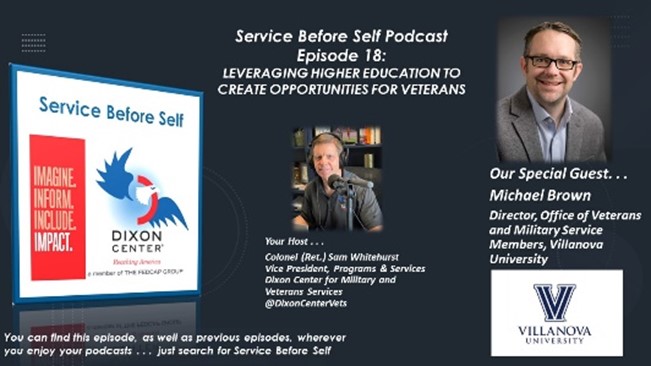Listen to the Service Before Self podcast, Episode 18, with Michael Brown, Director of the Office of Veterans and Military Service Members, at Villanova University. Michael and the team at Villanova have a proven model that assists student-veterans overcome the obstacles and challenges usually not faced by traditional students. Michael discusses how they have established a sense of community for student-veterans and their families at Villanova and how this has made all the difference.
Through Michael’s and Villanova’s leadership, and the leadership of organizations like Dixon Center, we will once again capture that transformative spirit that the original GI Bill sparked.
A factor contributing to the transformation of the American economy and society following World War II was the first version of the GI Bill—a pathway to higher education for both men and women veterans returning home (it’s important to note that while the GI Bill in theory, was open to all returning veterans from the war, in practice those benefits were often denied to Black veterans and other veterans of color). The foresight in creating this opportunity, accelerated the country’s economic recovery and expanded the middle-class following World War II.
Today, we have the same goal for the Post 9/11 GI Bill, a pathway to higher education and increased opportunities for veterans but now, also their families. Pathways and opportunities that will transform our country.
And while student-veterans graduate at higher rates than traditional students, they and their families still have unique challenges and needs. Typically, student Veterans are older, married with families, and work to support their families while they attend college. Research shows that close to 60% of student veterans report concerns about balancing school and other responsibilities.
